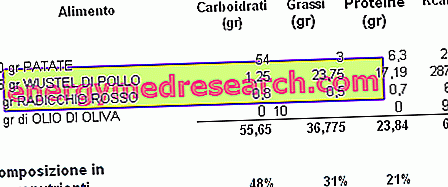Stomatitis refers to an inflammatory process that affects the mouth.
It can be acute or chronic and affect males or females of all ages.

The most sensitive areas are: the inside of the cheeks, the palate, the tongue, the gums and the lips.
The symptoms affect only the mucous membrane of the oral cavity and are accompanied by one or more of the following manifestations:
- Painful ulcers of modest size (mouth ulcers).
- Gingivitis.
- Glossitis.
- Cheilitis.
The pain caused by stomatitis can compromise diet and nutritional status (dehydration and malnutrition).
What to do
- Promptly recognize stomatitis: although it is a mild disorder, it is extremely annoying and, if untreated, can get worse. The symptoms are: pain (especially while eating, talking or brushing one's teeth), hypersensitivity to heat and spiciness, swelling, redness, pustules, mouth ulcers, oral ulcers (mouth ulcers) and sometimes blood loss.
- Differentiate stomatitis from labial ulcers caused by herpes simplex, which instead appear outside the oral cavity and are contagious. Ulcers associated with stomatitis, on the other hand, cannot be transmitted.
NB . The diagnosis is of medical interest
- Look for triggers and establish a specific cure (remembering that many stomatitis are defined as idiopathic):
- Food intolerances or allergies (including contact): eliminate the allergen or the non-tolerated molecule.
- Nutritional deficiencies: follow a proper diet.
- High psycho-physical stress: reducing habits and lifestyle to reduce stress.
- Reduction of oral immune defenses: it is impossible to increase localized immunity; therefore, in addition to following some rules that allow us to improve all the body's defenses, there are no other opportunities.
- Endocrine, metabolic and autoimmune disorders: the solution consists in the treatment of the pathology in question; in this case stomatitis represents a secondary objective.
- Taking drugs: if possible, it is necessary to replace the drug responsible for stomatitis with another well tolerated one.
- Chemically or physically irritating agents: should be avoided but sometimes not possible. An indicative example is mobile dental prostheses.
- It is known that the presence of a genetic polymorphism that increases the concentration of two factors of inflammation (IL-1 and TNF-alpha) is related to the presence of stomatitis. In this case it is not possible to intervene in any way on the primary cause.
- Infections: although the mouth should have sufficient immunity to fight infections, it is still necessary to adopt a correct oral hygiene to reduce the concentration of pathogens (bacteria, fungi, viruses).
- Use antiseptic mouthwashes: useful for disinfecting the oral cavity.
- Over-the-counter medications: help relieve symptoms (see below).
What NOT to do
- Ignore the appearance of the first symptoms and risk aggravation.
- Do not seek medical attention to diagnose and differentiate the Herpes simplex disorder: the risk is to follow an ineffective therapy or to promote contagion of Herpes.
- Skip research tests for allergies and intolerances.
- Continue with the use or intake of products responsible for adverse reactions.
- Follow an unbalanced diet that is potentially responsible for nutritional deficiencies.
- Follow periods of high psycho-physical stress.
- Neglecting or inadequately treating endocrine, metabolic and autoimmune disorders.
- Continue to take poorly tolerated drugs.
- Use chemically or physically irritating products.
- Do not respect proper oral hygiene.
- Do not respect drug therapy (over the counter or prescribed).
- Consume foods and drinks that are harmful or that worsen the symptoms.
- To smoke.
What to eat
- Nutrient rich foods whose deficiency can promote stomatitis or which can optimize the immune system:
- Iron: muscle tissue of terrestrial and aquatic animals (horsemeat, bovine, porcine, avian, fish, whole molluscs, whole crustaceans etc.), eggs (any, especially the yolk), offal and fifth quarter (especially spleen and liver, but also marrow, diaphragm, heart etc).
- Zinc: fish, red meat, cereals, legumes and dried fruit.
- Vitamin C: peppers, citrus fruits, parsley, kiwi, lettuce, pineapple, broccoli, chicory, new potatoes, tomatoes, cap, cherries, strawberries etc. Fresh and possibly raw.
- Folic acid: liver, vegetables (eg tomatoes), fruit (orange, apple, etc.) and legumes (eg beans).
- Vitamin B12: the same foods source of heme iron;
- Vitamin B1: legumes and whole grains, liver, kidney and other offal.
- Vitamin B5: offal, eggs, whole grains and mushrooms.
- Vitamin PP: meat, offal and fishery products; cereals contain a fair amount.
- Vitamin D: fish, fish oil and egg yolk.
- Probiotics: they are mainly found in fermented foods such as yogurt, tofu, tempeh, buttermilk etc.
What NOT to Eat
There are some products related to the onset of stomatitis or to the worsening of symptoms:
- Alcohol.
- Coffee and drinks or foods that contain large amounts.
- Very hot drinks and food.
- Spicy foods.
- In the case of celiac disease it is strictly necessary to exclude gluten from the diet
Natural Cures and Remedies
- Herbalist: there are plants with officinal action, herbal remedies and food supplements able to reduce the symptoms of stomatitis and prevent their occurrence:
- Immunostimulant plants to be taken in the form of herbal tea or extract: Androgafis, Astragalus, Echinacea, Eleutherococcus, Mistletoe, Uncaria, Cordyceps, Garlic, Aloe gel, Curcuma
- Calendula: anti-inflammatory and healing.
- Ribes: anti-inflammatory action.
- Rosa canina: contains vitamin C in high concentration.
- Lemon: disinfectant property and contains vitamin C.
- Propolis: Antiseptic property.
- Immunostimulant food supplements:
- Vitamin C: immunostimulant and antioxidant: accelerates the healing of oral ulcers.
- Vitamin D: immunostimulant.
- Probiotics: they are based on bifidobacteria and lactobacilli. To be taken on an empty stomach for at least two weeks.
Pharmacological care
- Medicated mouthwashes (under prescription) that contain specific molecules:
- Dexamethasone: corticocosteroid able to alleviate the typical symptoms of inflammation (swelling, pain, heat).
- Tetracycline: antibacterial inhibitor of protein synthesis (indicated especially in case of canker sores).
- Nystatin: antibiotic inhibitor of cytoplasmic membrane functions; binds to the membrane of the pathogen and neutralizes it.
- Diphenhydramine: antihistamine and local anesthetic.
- Anti-inflammatories: in the form of ointment or gel to be applied locally:
- Dexamethasone: for example Soldesan ®.
- Triamcinolone: for example Kenacort ®.
- Amlexanox: for example Amlenox ® and Aphthasol ®.
- Antibiotics, antifungals or antivirals: to be taken in case of infection and on the advice of a doctor.
- Anesthetics and painkillers, to relieve the sensation of pain related to the presence of the lesion:
- Sucralfate: for example Dermamed ®.
- Lidocaine: for example Luan ®.
- Protective or barrier medicaments.
Prevention
- Affects the root cause. Obviously it is not possible to predict the onset of a disease, except for cases in which a previous medical history exists.
- More generally:
- Respect an accurate oral hygiene.
- Use the toothbrush.
- Use mouthwash.
- Follow a balanced diet with no tolerated molecules.
- Limit alcohol consumption.
- Not smoking.
- Avoid chemical and physical stress with irritant action (for example, correct dental prostheses).
Medical Treatments
There are no medical treatments against stomatitis. The only exception is the interventions and corrections of a dental nature, but these are valid only if the stomatitis is caused by an annexed problem.



